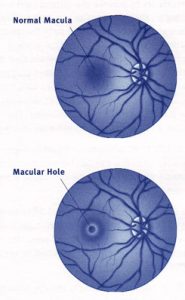One of the things that drive me crazy with Gavin his how he handles pain. Gavin will beat himself (literally) and not complain but then pitch a fit over the tiniest injury. For example yesterday he came down stairs freaking out because “I bumped my thumb on my action figures head”. He wasn’t hurt but was freaking out. If he thinks he hurt himself, say his finger for example, he will squeeze his fingure until it’s bruised in an attempt to make it bleed. Then when it eventually bleeds or just bruises he meltsdown. I just don’t get it.
Today alone I have lost track of all the “injuries” he came to show me. The biggest problem aside from annoyance it the example being set. Now Elliott is doing similar things because that’s what he sees Gavin do.
So where is he coming from on this? Is it a sensory thing, manipulation or hypochondria. I thinks its a lot of all three. It is exhausting and annoying to deal with this all the time. It’s one hing if he’s actually hurt but most of the time he isn’t. Don’t get me started on being sick cause that’s even more confusing. We never know when he’s actually sick or faking. Autism truly does complicate everything…
UPDATE:
Julia posted a really good response to this in the comments.
“Hi, often the way children with asd process pain is a sensory thing. Pain from minor injuries such as superficial cuts activates more nerves and travels a certain way to the brain while heavy knocks, bumps and falls travels up a different way using the same track as deep pressure (things like hugs, massage etc.) children who are already sensitive to touch (tactile defensive) also often have even more sensitive superficial pain receptors. Hope this makes sense!”




Hi Rob,
Sometimes a theatrical response can simply be not knowing how he should respond or what an appropriate response is to the level of pain he is feeling so he might over do it sometimes. Pain is a very subjective experience and for a child with autism who struggles with emotional responses, it can be hard to know how to react. Without knowing your son, it's hard to properly analyse his behaviour 🙂
Deep pressure (squeezing, cuddling, massage) may help to dampen a pain reaction, as that information does travel quicker to the brain and is usually calming.
Julia
This is some amazing insight. This is the kind of thing I want for this blog.
Julia,
Great explanation. My frustration is/has been that it always seemed more like "drama". He is very theatrical at times and it makes it difficult to take him seriously. However, that aside what you said makes perfect sense and I am going to update the original post with you comment. I don't want anyone to miss it by not reading the comments.
Thanks everyone for creating a very helpful discussion. Please keep it up. 🙂
try reading ogla bogdashina
sensory perceptual issues in autism and aspergers syndrome
you may wish to do the profile of him at the end i found it very useful
Thanks, Julia! That is a perfect explanation. I have found it helpful to give my students a way to handle those “little” hurts. One thing that works for them is giving them an option of kissing it or blowing on (they do that, not me) and then ask them how many kisses or blows it will take to make it to feel better.
Hi, often the way children with asd process pain is a sensory thing. Pain from minor injuries such as superficial cuts activates more nerves and travels a certain way to the brain while heavy knocks, bumps and falls travels up a different way using the same track as deep pressure (things like hugs, massage etc.) children who are already sensitive to touch (tactile defensive) also often have even more sensitive superficial pain receptors. Hope this makes sense!
i really know where you are coming from a little bump and you would think my sons arm is hanging off but if he really does hurt himself he feels nothing can someone make sense of this as i cant